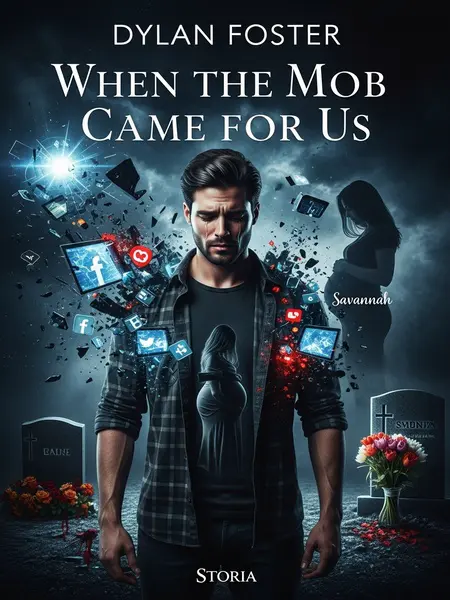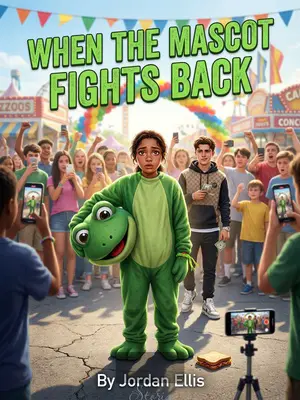Chapter 4: Hate at the Door
“Dylan, we’ve worked together for years. I trust you, but the company is about to go public. The negative press from this video is too much. I have to let you go…”
His words landed like blows. I wanted to argue, to beg, but I knew it was useless. The company’s reputation was worth more than my career, more than my pain.
His lips kept moving, but I couldn’t hear the rest.
It was like I’d been plunged underwater. The world faded to a dull roar. I stared at the floor, unable to process what was happening. Everything I’d built was crumbling around me.
So, after losing my child, I immediately lost my job as well.
I wandered out of the office in a fog, my mind blank. The city outside was bright and bustling, but I felt invisible—just another casualty of a world that didn’t care.
I left the office in a daze. My phone rang.
The ringtone startled me, jolting me back to reality. I almost didn’t answer, but something told me I needed to.
Randy’s greasy voice came through the receiver.
His laugh was low and mocking, every word dripping with satisfaction. "Hey, Mr. Foster. Rough day, huh?"
“Mr. Foster, you must have seen the video online. Have you considered the million in compensation?”
He sounded almost bored, as if this was just another business transaction. I gripped the phone so hard my knuckles turned white.
My whole body trembled, but inspiration struck—I turned on the recorder.
I thumbed the record button, trying to keep my voice steady. I needed evidence, something to fight back with. Maybe, just maybe, I could turn the tables.
“So, you mean the full video is in your hands, and you want a million from me to buy it?”
I tried to sound casual, as if I was actually considering it. I needed him to incriminate himself, to admit the blackmail.
On the other end, Randy paused, then chuckled.
He let the silence stretch, savoring the moment. Then he laughed, a harsh, grating sound that made my skin crawl.
“Don’t talk nonsense. The million is for my mom’s medical bills. As for the video, once I get the money, whoever has the video will naturally delete it.”
He was careful, never quite admitting to anything. I could hear the smile in his voice, the confidence of someone who’d played this game before.
I clenched my fist.
My nails dug into my palm, drawing blood. I wanted to scream, to smash the phone, but I forced myself to stay calm. I needed more. I needed him to slip up.
Randy was more cunning than I thought—clearly, he’d done this kind of blackmail before.
His words were slippery, never quite saying what he meant. I realized I was up against a pro, someone who’d made a career out of ruining lives.
I tried to get him to say more for the recording, but he caught on.
He grew wary, his answers shorter, more guarded. I could sense him pulling back, the window of opportunity closing fast.
When I didn’t respond, Randy calmly gave me a hospital address, saying Mary was “recuperating” there and asked me to meet him in person.
He rattled off the address, his tone businesslike. "Come by when you’re ready to talk real money."
After hanging up, I didn’t go to the hospital—I went straight to a law firm.
I wiped the rain from my face, squared my shoulders, and marched into the first law office I saw. The receptionist looked up, startled by my wild-eyed desperation. I didn’t care. I needed help, and I needed it now.
I believed that evil couldn’t win forever.
I clung to that belief, even as the world seemed determined to prove me wrong. I told the lawyer everything—every detail, every heartbreak. He listened, nodding, and promised to help.
Randy’s scam killed my child, cost me my job, and now he wanted to extort me? Not a chance.
I signed every paper, handed over every scrap of evidence. My hands shook, but my resolve hardened. I wouldn’t let Randy destroy anyone else.
I hired a lawyer to gather evidence of Randy’s scams, preparing to confront him in court.
The lawyer was sharp, relentless. He promised to dig up everything—every victim, every scam, every lie. I felt hope flicker in my chest for the first time in days.
While the lawyer and I were collecting evidence, the incident blew up online.
My phone buzzed constantly—texts, calls, notifications. The story was everywhere. I was trending for all the wrong reasons.
Several big-name influencers reposted the video and added their own commentary, riling up folks on Instagram and TikTok to denounce me.
Their voices were loud, confident, and utterly convinced of my guilt. They dissected every frame, every gesture, turning me into a villain for their followers. Hashtags like #CancelHim, #DoBetter, and #Receipts trended for hours.
“So what if you’re rich? Hit someone and still act like a jerk.”
"Money can’t buy you morals," one influencer sneered in her video, racking up hundreds of thousands of likes. The comments poured in, each one harsher than the last.
“Look at his license plate. Who’s got connections? Find out who owns it.”
People posted screenshots of my car, zooming in on every detail. Some claimed to know me, spinning wild stories about my supposed arrogance and shady business deals.
“Exactly, driving a car like that—must be dirty money.”
They speculated about my salary, my family, my past. Every aspect of my life became fodder for public consumption, twisted and distorted beyond recognition.
Under their influence, everyone online piled on.
The mob mentality was relentless. Strangers called for my arrest, my ruin, my head on a pike. My inbox filled with threats, my phone rang nonstop with unknown numbers.
In their eyes, I was a heartless bastard, arrogant, with zero sympathy.
No one cared about the truth. They only saw what they wanted to see—a villain to punish, a scapegoat for their own frustrations.
In less than half an hour, my personal info was outed.
They found my address, my phone number, even my parents’ contact info. My family started getting harassing calls. I felt powerless, exposed, hunted.
What I didn’t expect was that my company quickly put out a PR statement, announcing my firing and, in the same breath, touting its “core values of equality, community, and responsibility”—getting some free press in the process.
The statement was cold and clinical, distancing themselves from me as fast as possible. They even used the opportunity to launch a new social campaign, painting themselves as heroes. The betrayal stung more than I expected.
Reading the venomous comments and seeing my former employer disown me, my hands shook with anger.











